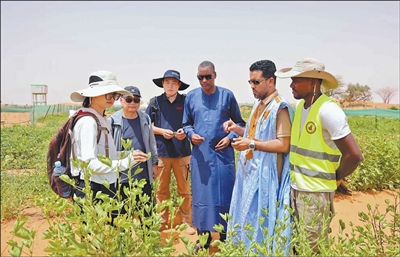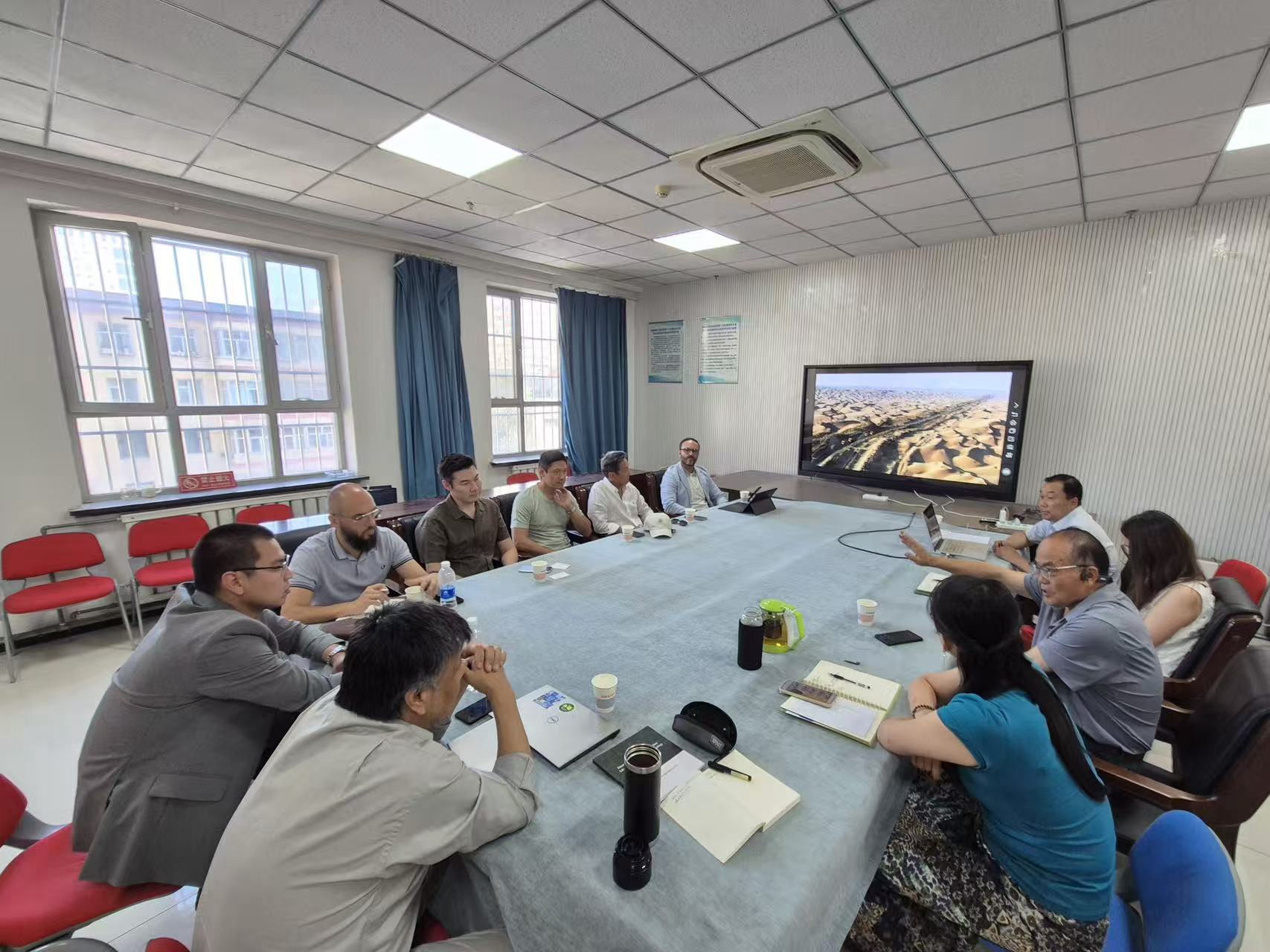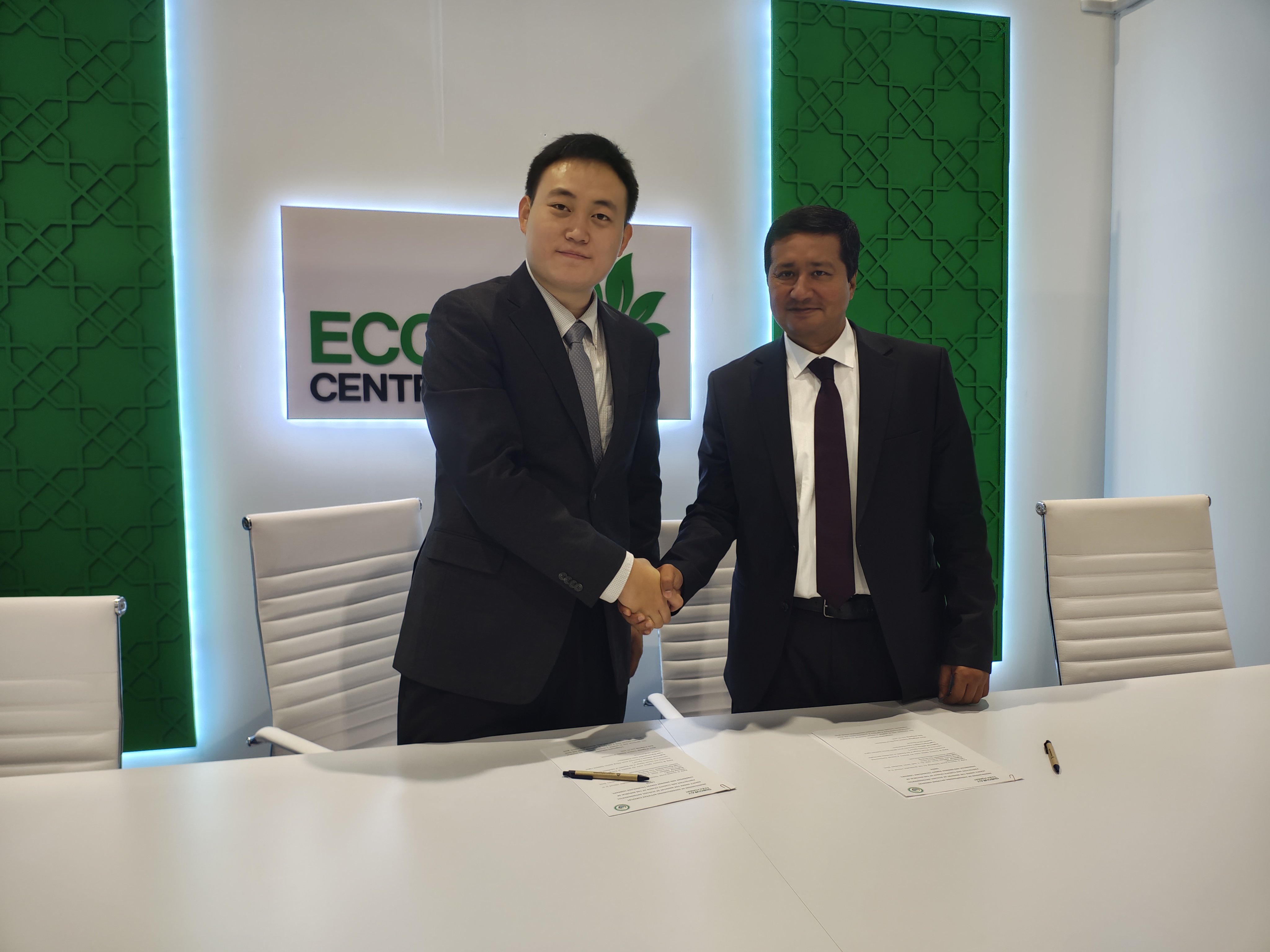[April 2025, Nukus, Uzbekistan] Recently, with the continuous progress of the ecological restoration project of Sinoway Forest Technology Co., Ltd., Tian Zhiqiang, the General Manager of the company, led a technical team including Jia Xiongwei and Wang Junlin to visit the Republic of Karakalpakstan in Uzbekistan. This marks that Sinoway Forest's ecological project in Central Asia has officially entered the substantive implementation stage.
On-site Research and Cooperation with Universities: Both Sides Define the Direction of Advancement
On April 10, 2025, the team arrived in Nukus City, located in the western part of Uzbekistan, and visited Karakalpak State University in the morning of the same day. Accompanied by Vice President Timur Nurimbetov and his scientific research team, both sides had in-depth discussions on topics such as the implementation path, key nodes, scientific research support, seedling domestication, and monitoring and evaluation of the ecological project, and reached a preliminary consensus, laying a solid foundation for subsequent cooperation.
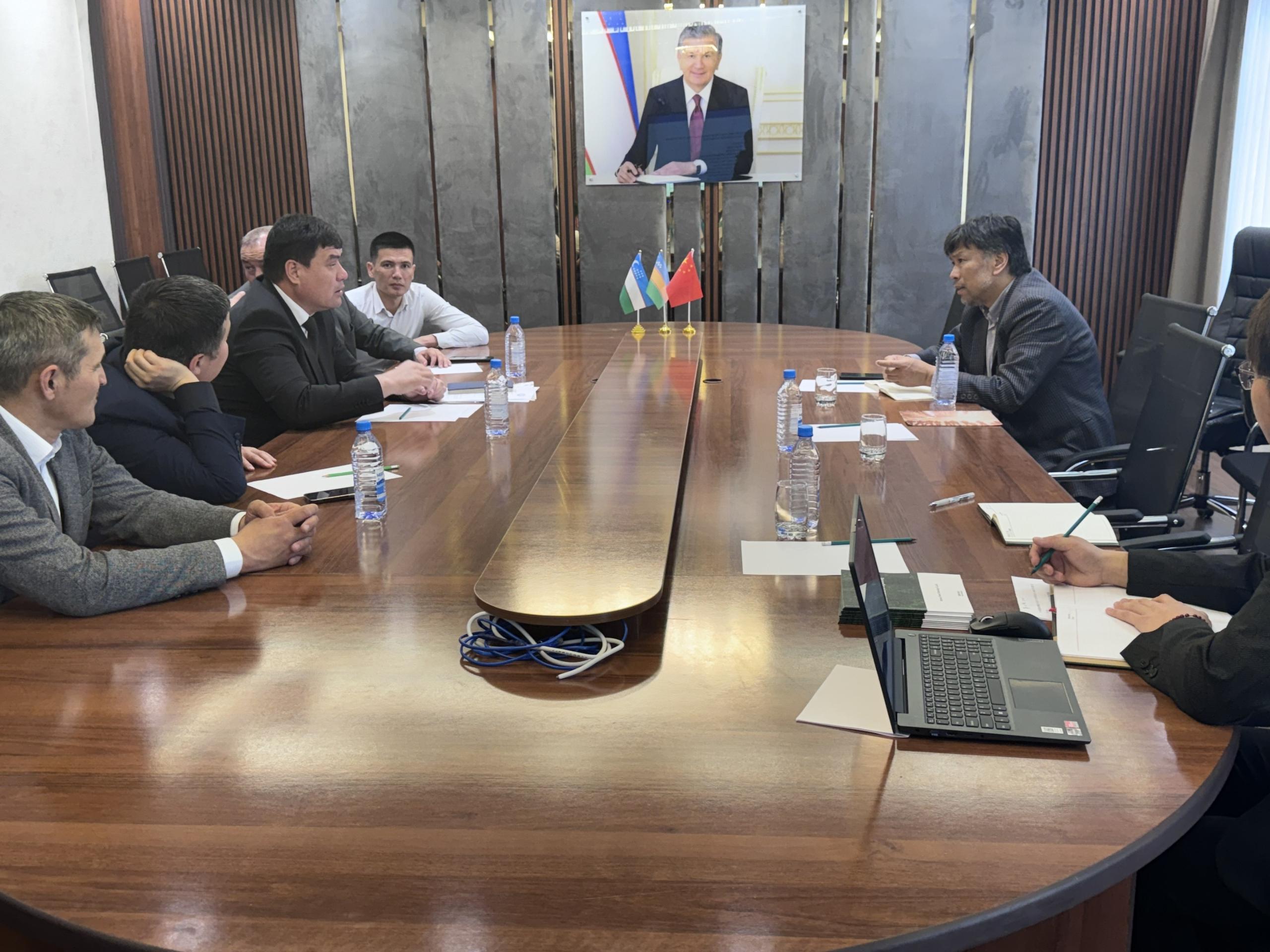
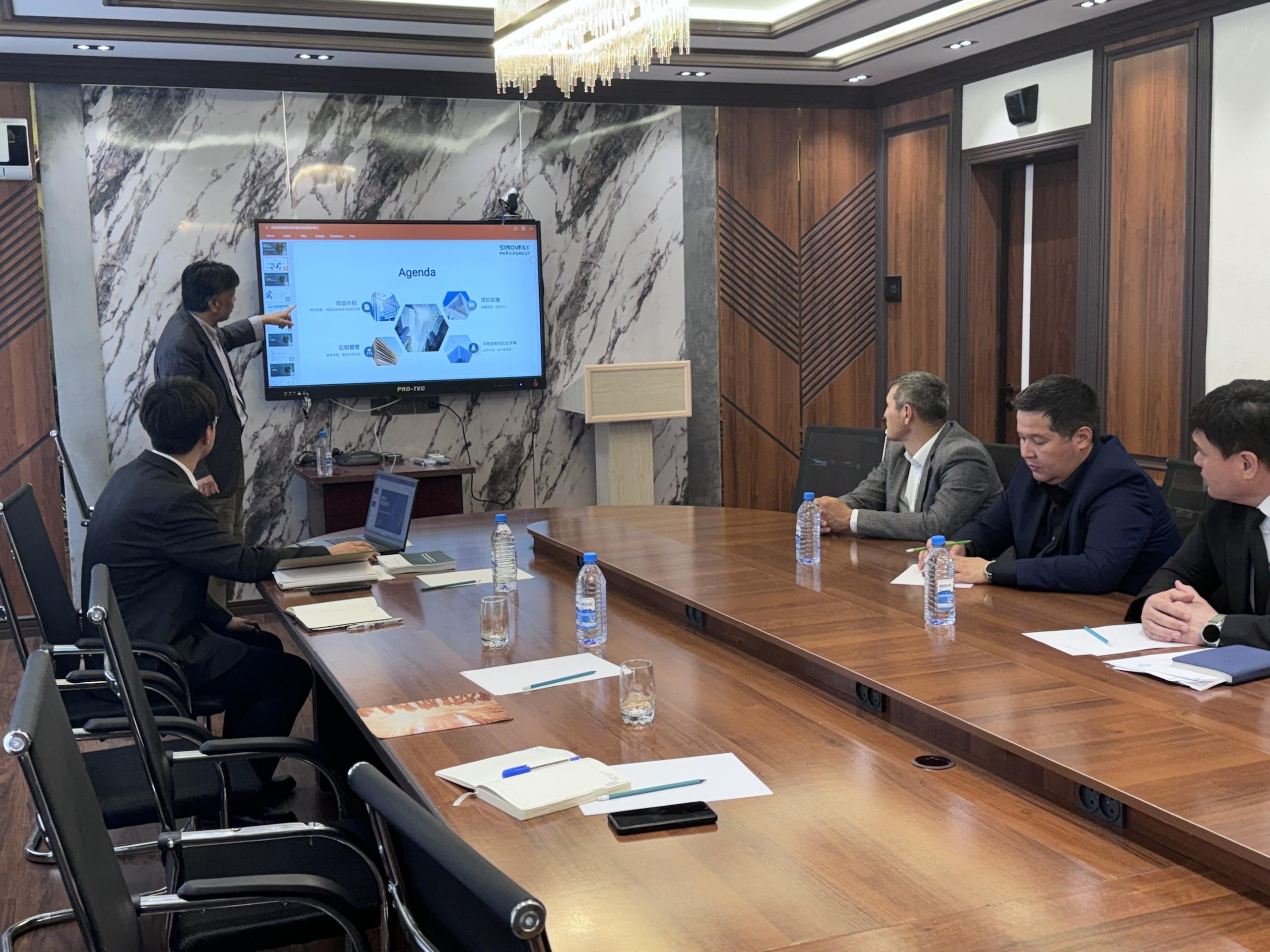
In the afternoon of the same day, the project team conducted an on-site inspection of the NUKUS project area, carried out geomorphic observations, vegetation surveys, and preliminary judgments on the suitability of planting. At the same time, they collected on-site environmental data to gather first-hand basic information, providing scientific support for the project deployment.
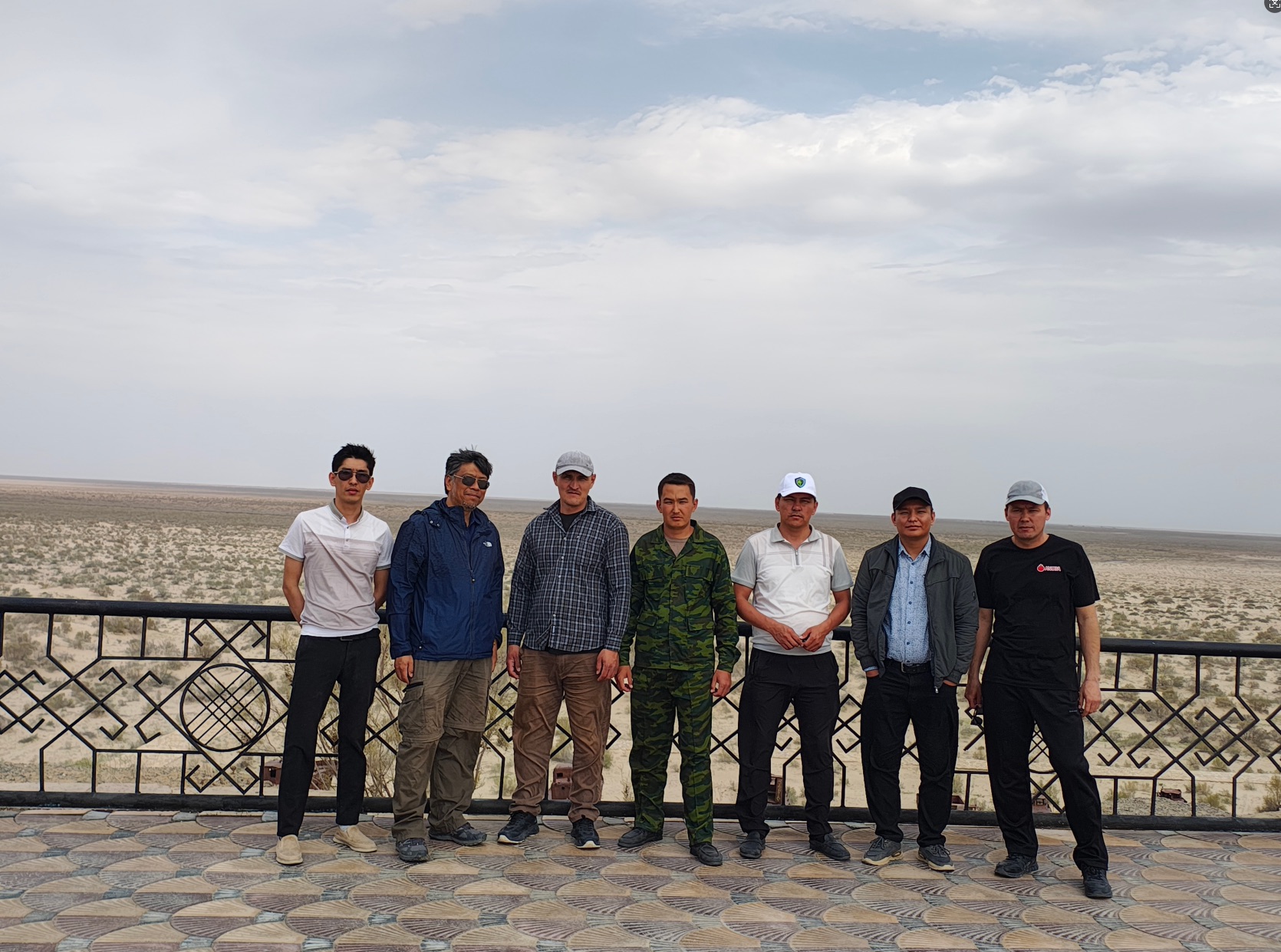
Selecting Adaptable Seedlings and Initiating Soil Testing in the Demonstration Area
On April 11, the team went to the forestry station in the Mo‘ynoq region and had a discussion with local officials on the vegetation restoration strategy in the degraded area of the Aral Sea. They exchanged views on technical issues such as seedling selection, planting patterns, and stress resistance, and purchased three tree species that are adapted to the local saline-alkali and arid conditions: Halostachys caspica, Tamarix spp., and Haloxylon ammodendron. These seedlings will be used for demonstration planting in the pilot area in the following period.
On the same day, the team also went to the project demonstration area in the degraded zone of the Aral Sea for on-site investigation and completed the first round of soil profile sampling. The samples will be sent to the laboratory of Karakalpak State University for analysis of physical and chemical properties and heavy metal content, in order to further evaluate the feasibility of vegetation restoration and soil improvement.
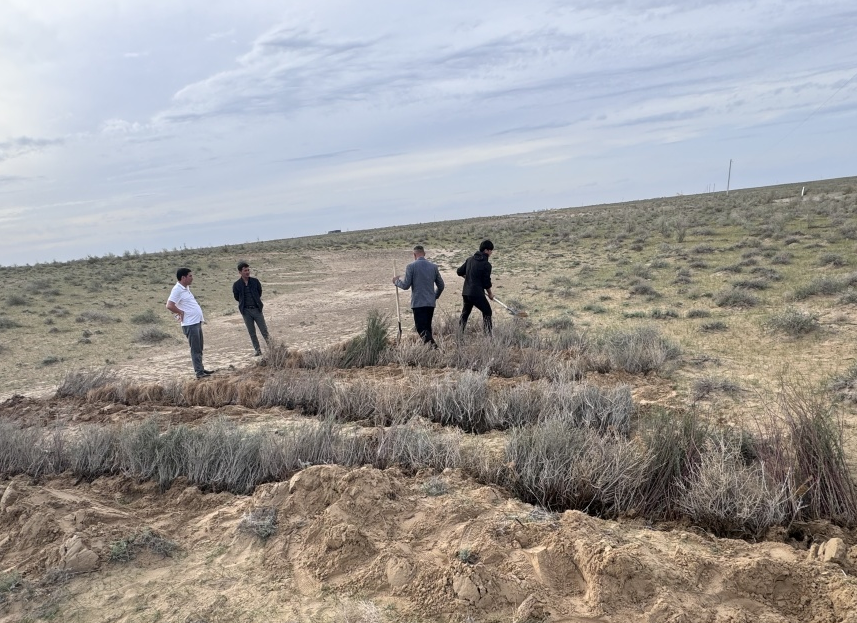
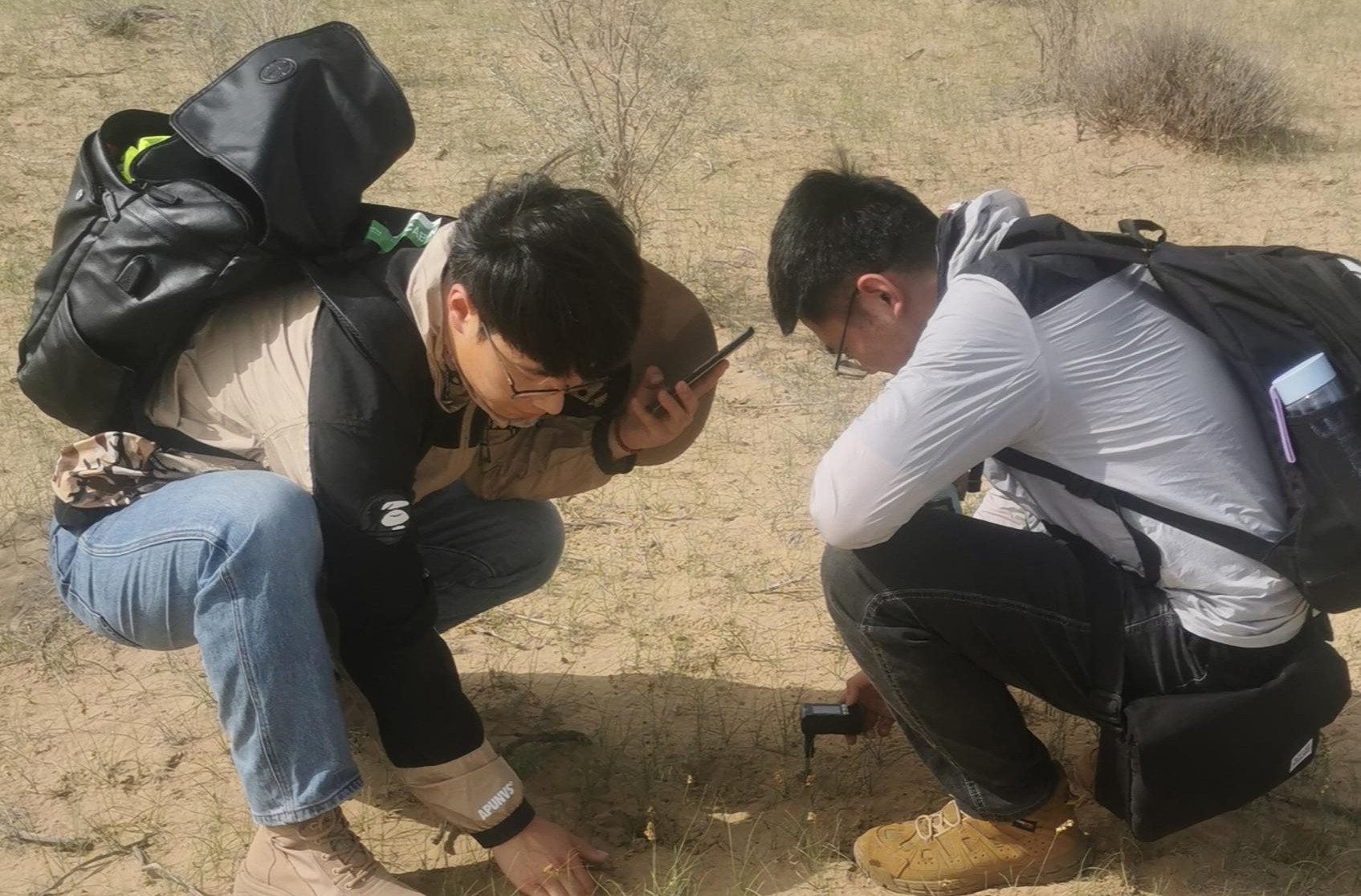
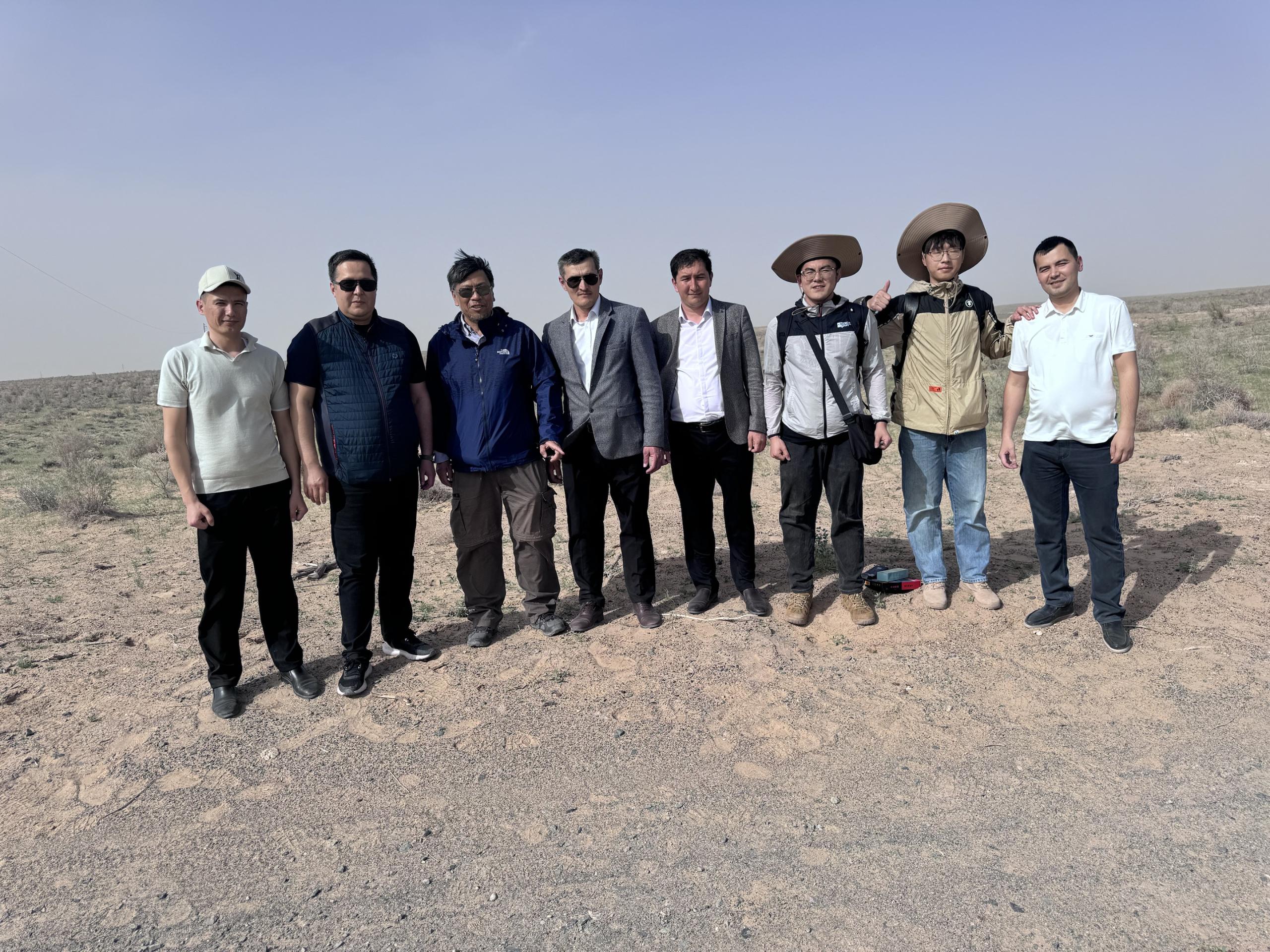
Ecological Background of the Aral Sea: Desertification and Salinization Urgently Need to Be Managed
The Aral Sea was once the fourth largest inland lake in the world. Due to excessive irrigation water extraction in the middle and late 20th century, its water body has shrunk to less than 10% of its original area, leading to serious degradation of the ecosystem, a sharp decline in regional biodiversity, and increasingly serious environmental problems such as land desertification and salt dust storms. Nukus and its surrounding areas have an arid continental climate, with an annual precipitation of less than 150 millimeters. The fragile ecology and frequent dust storms make it a key ecological function area that the government of Uzbekistan gives priority to managing.

Sinoway Forest: Facilitating the Implementation of China-Uzbekistan Ecological Cooperation
Sinoway Forest's project in Uzbekistan this time is not only a positive response to the "Silk Road Green Chain" initiative but also an important expansion of the company's ecological governance practice under the Belt and Road Initiative. The project will combine the scientific research achievements of the Institute of Ecology and Geography of the Chinese Academy of Sciences to explore a low-cost ecological restoration path suitable for the arid regions of Central Asia.
In the future, Sinoway Forest will continue to deepen its cooperation with Uzbek universities and scientific research institutions, gradually promoting work such as demonstration planting of seedlings, testing of bulb technology, and construction of micro-water irrigation systems, and contributing a Chinese solution to the ecological restoration and development of carbon sink forests in Uzbekistan.









